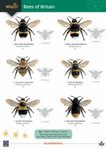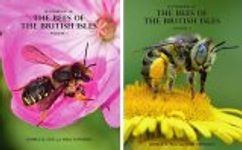Identification Key Monograph
By: Buntika A Butcher(Author), Donald LJ Quicke(Author)
470 pages, colour photos, colour illustrations
![Parasitoid Wasps of South East Asia Parasitoid Wasps of South East Asia]()
Click to have a closer look
About this book
Customer reviews
Biography
Related titles
About this book
Parasitoid wasps are cosmopolitan, numerous and enormously diverse with probably one million or more species worldwide, most of which occur in moist tropics. The ecological importance of this group of insects is enormous although perhaps most evident in their major roles in the control of insect pest populations. In natural ecosystems, they are integral in regulating populations of a vast number of insects and therefore are key players in terrestrial food webs. Knowledge of their biology is still very poor because the current state of taxonomy is still in its infancy in many parts of the world.
In this book, the authors provide an overview of the more than 30 families of parasitoid wasps that are found in 11 countries in Southeast Asia. Particular emphasis is given to the most commonly encountered and reared, and those used as natural enemies in biological control programs. In addition, outlines of the biology, ecology and behaviour of each family and important subfamily are presented. The current state of taxonomy in the region is summarized using distribution maps. Other chapters cover basic morphology, terminology and identification, collecting and rearing in the tropics, food web construction, and the molecular revolution in the identification of difficult taxonomic groups. All groups are photographically illustrated.
This book will be of value to professional entomologists, academics, entomology students and the growing body of amateur entomologists and insect photographers.
Customer Reviews
Biography
Buntika A. Butcher has worked with parasitoid wasps (plus some forensic entomology) since gaining her PhD in the Department of Biology, Imperial College London in 2004. On returning to Thailand she was appointed to a lectureship at Chulalongkorn University Bangkok and was subsequently promoted to Associate Professor in 2015. She has published more than 60 papers and has supervised numerous entomology students to master's and doctoral degree levels.
Prof. Dr Donald Quicke has had more than 40 years of experience teaching undergraduate and postgraduate biology students, initially at Sheffield University, UK and then at Imperial College London. He retired in 2013 and is now a teaching research fellow at the Department of Biology, Chulalongkorn University, Bangkok, Thailand. He is one of the world's leading experts on the taxonomy, systematics and biology of parasitoid wasps.
Identification Key Monograph
By: Buntika A Butcher(Author), Donald LJ Quicke(Author)
470 pages, colour photos, colour illustrations


































